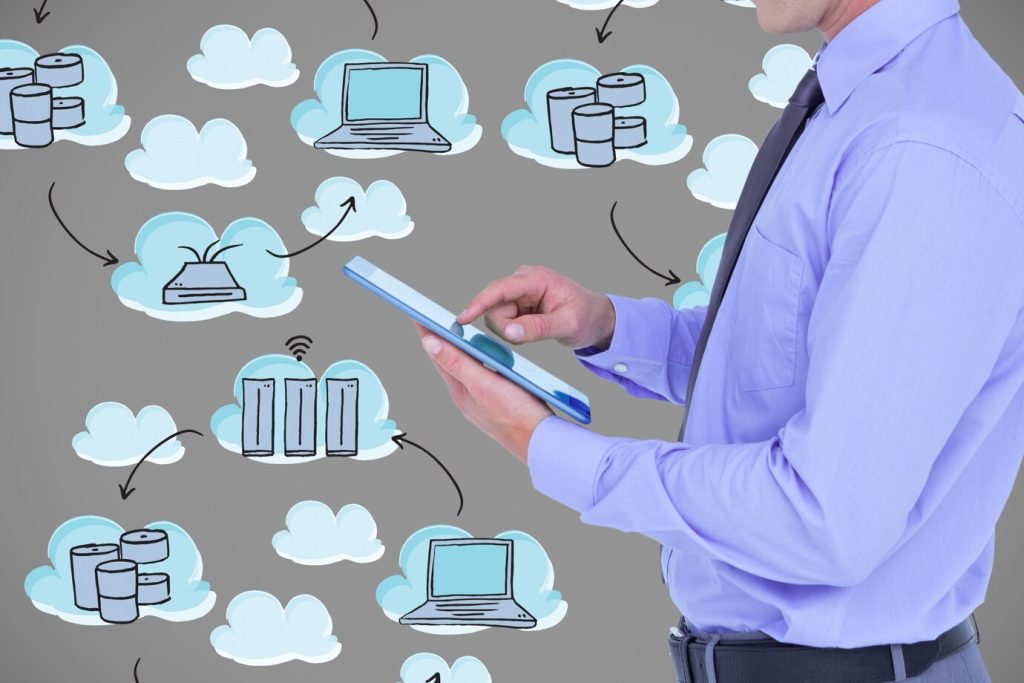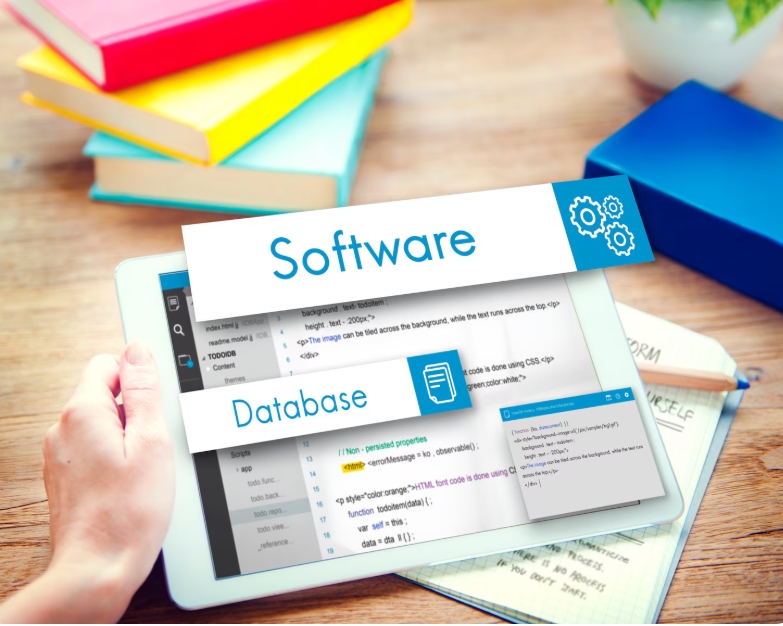Cloud computing has transformed the way businesses manage their IT resources, offering flexibility, cost savings, and scalability. Whether you’re a business owner or a student looking to understand cloud technologies better, testing your knowledge with cloud computing MCQ (Multiple Choice Questions) can help solidify your understanding. These MCQs cover everything from basic concepts to more advanced topics, helping you grasp key principles and service models like SaaS, PaaS, and IaaS. In this article, we’ll explore the fundamentals of cloud computing and provide useful MCQs to enhance your learning. Let’s dive into the world of cloud computing and boost your expertise!
Cloud Computing MCQ to Test Your Knowledge and Skills

What is Cloud Computing?
A) Storing data on physical servers
B) A model for delivering computing services over the internet
C) A type of database management system
D) A backup solution for local servers
Answer: B) A model for delivering computing services over the internet
Which of the following is an example of a Platform as a Service (PaaS)?
A) Amazon Web Services (AWS)
B) Microsoft Azure
C) Google App Engine
D) Dropbox
Answer: C) Google App Engine
What does SaaS stand for?
A) Software as a Service
B) Storage as a Service
C) Service as a Software
D) Security as a Service
Answer: A) Software as a Service
Which of the following is NOT a benefit of cloud computing?
A) Cost efficiency
B) Scalability
C) High maintenance costs
D) Accessibility
Answer: C) High maintenance costs
What is the main function of IaaS?
A) To offer software to users
B) To provide a platform for developers to build applications
C) To offer virtualized computing resources over the internet
D) To provide internet security services
Answer: C) To offer virtualized computing resources over the internet
Which cloud model is best for organizations with sensitive data?
A) Public Cloud
B) Private Cloud
C) Hybrid Cloud
D) Community Cloud
Answer: B) Private Cloud
Which of the following is an example of IaaS?
A) Microsoft Azure
B) Google App Engine
C) Amazon EC2
D) Dropbox
Answer: C) Amazon EC2
What is a key advantage of serverless computing?
A) Users pay for idle time
B) Automatic scaling based on demand
C) Users manage infrastructure
D) Resources are fixed and limited
Answer: B) Automatic scaling based on demand
Which of the following is NOT a feature of cloud computing?
A) On-demand self-service
B) Broad network access
C) Limited resource pooling
D) Rapid elasticity
Answer: C) Limited resource pooling
What does the “elasticity” of cloud computing refer to?
A) The ability to store large data volumes
B) The ability to scale resources up or down based on demand
C) The ability to secure data
D) The ability to install software on hardware
Answer: B) The ability to scale resources up or down based on demand
Which technology enables cloud computing’s resource sharing?
A) Blockchain
B) Virtualization
C) Machine Learning
D) Artificial Intelligence
Answer: B) Virtualization
Which of the following is a key component of cloud infrastructure?
A) Database management
B) Physical servers
C) High-speed networking
D) All of the above
Answer: D) All of the above
Which cloud model provides a mix of private and public cloud services?
A) Hybrid Cloud
B) Private Cloud
C) Community Cloud
D) Public Cloud
Answer: A) Hybrid Cloud
What is the primary function of a hypervisor in cloud computing?
A) To manage cloud resources
B) To provide security for cloud storage
C) To create and manage virtual machines
D) To store user data
Answer: C) To create and manage virtual machines
Which cloud computing model is best suited for developers looking to build applications without managing the underlying infrastructure?
A) IaaS
B) SaaS
C) PaaS
D) DaaS
Answer: C) PaaS
Which of the following is an example of a SaaS product?
A) AWS EC2
B) Microsoft Office 365
C) Google Kubernetes Engine
D) Amazon S3
Answer: B) Microsoft Office 365
Which of the following is an advantage of using cloud computing for businesses?
A) High upfront capital expenditure
B) Reduced scalability
C) Reduced flexibility
D) Pay-as-you-go pricing model
Answer: D) Pay-as-you-go pricing model
Which deployment model involves a third-party provider offering cloud services that are shared with multiple organizations?
A) Private Cloud
B) Public Cloud
C) Hybrid Cloud
D) Community Cloud
Answer: B) Public Cloud
Which type of cloud deployment offers the highest level of security and control?
A) Public Cloud
B) Hybrid Cloud
C) Private Cloud
D) Community Cloud
Answer: C) Private Cloud
What is the key feature of containerization in cloud computing?
A) Virtualization of the entire hardware
B) Packaging applications and dependencies into isolated environments
C) Running applications directly on physical servers
D) None of the above
Answer: B) Packaging applications and dependencies into isolated environments
Which of the following best describes cloud storage?
A) Storing data on a local hard drive
B) Storing data on remote servers accessible over the internet
C) Storing data on optical discs
D) Storing data in physical archives
Answer: B) Storing data on remote servers accessible over the internet
Which of the following is an example of a cloud-based collaboration tool?
A) Google Docs
B) Microsoft Excel
C) Adobe Photoshop
D) Notepad
Answer: A) Google Docs
What does “multi-tenancy” mean in the context of cloud computing?
A) Using multiple cloud providers simultaneously
B) Hosting multiple users on shared resources
C) Storing data in multiple data centers
D) Providing users with multiple types of services
Answer: B) Hosting multiple users on shared resources
Which of the following is a primary characteristic of cloud computing?
A) Limited access to applications
B) High level of control over physical infrastructure
C) On-demand self-service
D) Permanent storage on local devices
Answer: C) On-demand self-service
Which of the following would be considered a private cloud?
A) Google Cloud Platform
B) A cloud infrastructure dedicated to a single organization
C) Amazon Web Services
D) Dropbox
Answer: B) A cloud infrastructure dedicated to a single organization
Which is a key benefit of cloud computing for startups?
A) High initial investment
B) High maintenance costs
C) Pay-per-use pricing
D) Increased IT staff requirements
Answer: C) Pay-per-use pricing
What does the “pay-as-you-go” model mean in cloud computing?
A) Paying for services upfront regardless of usage
B) Paying only for the resources used during the billing period
C) Paying a fixed price for all services
D) Paying for server hardware
Answer: B) Paying only for the resources used during the billing period
Which of the following is a concern when using public cloud services?
A) Vendor lock-in
B) Limited scalability
C) High costs
D) Difficulty accessing resources
Answer: A) Vendor lock-in
Which of the following best describes cloud security?
A) Managing data in a physical location
B) Encrypting and securing data stored in cloud environments
C) Storing data on external devices
D) Controlling access to local servers
Answer: B) Encrypting and securing data stored in cloud environments
Which cloud service model offers users the ability to manage the operating system and applications but not the underlying hardware?
A) SaaS
B) IaaS
C) PaaS
D) DaaS
Answer: C) PaaS
Which of the following is a type of cloud storage?
A) Local storage
B) Network-attached storage (NAS)
C) Object storage
D) Direct-attached storage (DAS)
Answer: C) Object storage
Which of the following is a key disadvantage of cloud computing?
A) Scalability
B) High security
C) Dependence on internet connectivity
D) Reduced accessibility
Answer: C) Dependence on internet connectivity
Which of the following describes the term “cloud bursting”?
A) Moving data from private cloud to public cloud during high demand
B) Scaling resources up or down based on pre-configured rules
C) Storing cloud resources on a private server
D) Shutting down cloud services during off-peak hours
Answer: A) Moving data from private cloud to public cloud during high demand
Which of the following is a cloud computing provider that offers IaaS?
A) Microsoft OneDrive
B) Amazon Web Services (AWS)
C) Google Drive
D) Dropbox
Answer: B) Amazon Web Services (AWS)
Which term refers to a technology that allows users to run multiple operating systems on a single physical machine?
A) Serverless computing
B) Virtualization
C) Containerization
D) Load balancing
Answer: B) Virtualization
Which of the following is a characteristic of cloud-native applications?
A) They are built to be used with on-premise servers
B) They rely on monolithic architectures
C) They are designed to run in cloud environments
D) They are not scalable
Answer: C) They are designed to run in cloud environments
What is the role of the cloud service provider in cloud computing?
A) To build on-premise servers
B) To manage customer data and applications
C) To provide IT support for end users
D) To provide cloud services and infrastructure
Answer: D) To provide cloud services and infrastructure
Which of the following is a popular open-source containerization platform?
A) Kubernetes
B) Microsoft Azure
C) Google Compute Engine
D) AWS Lambda
Answer: A) Kubernetes
Which of the following describes a “pay-per-use” cloud computing model?
A) Customers pay a flat fee each month for fixed resources
B) Customers pay based on the amount of computing resources they use
C) Customers pay a one-time licensing fee
D) Customers pay only for storage used
Answer: B) Customers pay based on the amount of computing resources they use
What does “multi-cloud” refer to in cloud computing?
A) Using a combination of public, private, and hybrid clouds
B) Using multiple cloud providers for different services
C) Using cloud computing for large data sets
D) Using private clouds for non-critical applications
Answer: B) Using multiple cloud providers for different services
Which of the following is an example of a disaster recovery solution in the cloud?
A) Cloud-based backups
B) Encryption
C) Load balancing
D) Software as a Service
Answer: A) Cloud-based backups
Which term refers to a cloud service offering that delivers virtualized computing resources like servers and storage?
A) SaaS
B) IaaS
C) PaaS
D) DaaS
Answer: B) IaaS
What is the main focus of Cloud Security?
A) Data privacy and protection
B) Networking optimization
C) Storage management
D) Physical server security
Answer: A) Data privacy and protection
Which of the following cloud computing models allows businesses to rent only specific computing resources?
A) SaaS
B) PaaS
C) IaaS
D) DaaS
Answer: C) IaaS
Which of the following can cloud computing help businesses avoid?
A) High capital expenditure on hardware
B) Internet access
C) Software licensing fees
D) All of the above
Answer: A) High capital expenditure on hardware
What is one disadvantage of using a public cloud for sensitive data?
A) Higher costs
B) Less scalability
C) Security and privacy concerns
D) Limited resources
Answer: C) Security and privacy concerns
Which type of cloud service is best for an organization that needs software solutions like email, CRM, or collaboration tools?
A) SaaS
B) IaaS
C) PaaS
D) DaaS
Answer: A) SaaS
Which of the following technologies is critical to the operation of cloud computing services?
A) Blockchain
B) Virtualization
C) GPS tracking
D) None of the above
Answer: B) Virtualization
What type of cloud deployment model involves a single organization using its private cloud but also utilizing resources from the public cloud during peak times?
A) Hybrid Cloud
B) Private Cloud
C) Public Cloud
D) Community Cloud
Answer: A) Hybrid Cloud
Which of the following is a potential downside of cloud computing for businesses?
A) Limited availability
B) Control over infrastructure
C) Data security risks
D) Lack of scalability
Answer: C) Data security risks
Which of the following is an example of an open-source cloud platform?
A) Google Cloud Platform
B) Amazon Web Services (AWS)
C) OpenStack
D) Microsoft Azure
Answer: C) OpenStack
Which of the following is a key principle of cloud computing?
A) Resource pooling
B) Fixed capacity
C) High upfront costs
D) Limited access
Answer: A) Resource pooling
Which cloud service model would a developer use to host applications without managing the underlying infrastructure?
A) SaaS
B) IaaS
C) PaaS
D) DaaS
Answer: C) PaaS
Which of the following is a risk associated with vendor lock-in in cloud computing?
A) High cost of migrating to another provider
B) Increased scalability
C) Easier integration with new providers
D) Improved service reliability
Answer: A) High cost of migrating to another provider
What does the “scalability” of cloud services refer to?
A) The ability to secure data effectively
B) The ability to increase or decrease resources as needed
C) The ability to share resources across multiple users
D) The ability to store large amounts of data
Answer: B) The ability to increase or decrease resources as needed
Which of the following is an example of a hybrid cloud?
A) Using a private cloud for sensitive data and a public cloud for less critical applications
B) Using only public cloud resources
C) Using only private cloud services
D) Using cloud resources for all computing needs
Answer: A) Using a private cloud for sensitive data and a public cloud for less critical applications
Which cloud computing model is the most flexible for users who want to manage their virtual machines and storage?
A) IaaS
B) PaaS
C) SaaS
D) DaaS
Answer: A) IaaS
Which of the following can cloud computing services provide to businesses in terms of storage?
A) On-demand data storage
B) High maintenance costs
C) Reduced flexibility
D) Limited scalability
Answer: A) On-demand data storage
Which of the following is an advantage of using cloud applications for collaboration?
A) Access to files from any location
B) Increased costs for communication
C) Limited access to data
D) Slower response times
Answer: A) Access to files from any location
Which of the following is an example of a PaaS offering?
A) Google Compute Engine
B) Dropbox
C) Microsoft Azure
D) Amazon EC2
Answer: C) Microsoft Azure
Wrapping Up
Cloud computing has revolutionized how businesses and individuals manage data and applications. With its flexible, scalable, and cost-effective nature, it has become an essential tool for modern-day operations. By exploring cloud computing MCQ, you can enhance your understanding of the different service models, deployment types, and key technologies that power the cloud. Whether you’re new to cloud computing or looking to strengthen your knowledge, practicing with MCQs can help solidify key concepts and prepare you for real-world applications. Keep learning, and stay updated as cloud technology continues to evolve and reshape industries worldwide.





